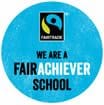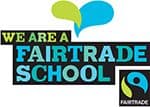S2 Computing Science
Course Overview
Our S2 course follows the Experiences and Outcomes outlined in A Curriculum for Excellence – Technologies Curriculum Area.
Computers play an important part in today’s society. The course aims to develop skills and confidence in the use of computers and broaden the pupil’s understanding of the wide range of applications available.
The course is divided into the following units of work:
Web Site Creation
This unit allows pupils to develop their knowledge and understanding of the HTML and CSS code used to create web pages. Pupils will create multimedia web pages using Brackets software. Some of the tasks will allow pupil choice and give them an opportunity to design and create web pages on topics that interest them.
Computer Systems/Media Types
This unit allows pupils to build on the concepts taught in S1, looking at computer architecture, how to convert between denary and binary and the different ways to store media in computers
Animation
This unit explores the history of animation and Pivot Animator software is used to create animations that have been designed using storyboards.
Security Risks and Precautions
This topic addresses the many issues that may arise with the increasing use of computer systems in day-to-day life. It focuses on protecting the data held on computing devices with particular emphasis on the effect of malware and hacking and looking at how the risks to these maybe reduced with the use of anti-virus software and robust passwords.
Databases
This unit allows pupils to develop knowledge and an understanding of how a database can be used store and extract information. Pupils will create databases using the Microsoft Access and extract information using searching and sorting features.
MicroBits
This unit uses BBC MicroBits to look at the relationship between computer hardware and software. Pupils program MicroBits using a variety of languages such as Blocks Programming, JavaScript and/or Python.
Software Development
This topic allows pupils to develop knowledge and an understanding of the first 4 stages in a software development process. They will be able to identify the tasks involved in these stages and put this knowledge into practise during practical tasks. Pupils will use LiveCode software to create programs containing assignments, conditional statements, and fixed loops.
Methodology
Teacher-led discussion, cooperative group work and formative assessment strategies are used to give pupils the opportunity to demonstrate and improve their knowledge, practical skills and skills for learning, life and work.
Assessment
Pupils undertake an online test at the end of each unit.
Unit 1 – WB 28th October
Unit 2 – WB 2nd March
Unit 3 – WB 30th April
There will also be a final S1 course online test in May WB 11th & WB 18th
Practical work will be assessed throughout the year by the class teacher and by their peers.
Recording & Reporting
The online tests and practical work form the basis for the pupil tracking reports issued to parents.
Miss Stalker CL .. Mr Lodge.. Mrs Zafar
S2 CfE
This course consists of 2 periods per week for each S2 class.
Topics taught
June
Introduction to the S2 course
Types of Computers
August to Feb
Data Representation
Networks including MS365
Operating systems & Applications
Test unit 1 A WB 21st October
Databases
Theory Revision
Test Unit 1 B WB 24th Feb
Jan/ Feb – March
Security Risks
Website and HTML
Media Types
Theory Revision
Test unit 2 WB 16th March
March – April
Computers and the Law
Animation:Flipbook or Styz
MS365 revision
Easter Holidays – New Timetable
Software Development Process
Programming – Livecode
Theory Revision
Test WB 4TH MAY
Easter Holidays – New Timetable
Programming – Livecode
Theory Revision
S2 Exam WB 18th May
Resources
S2 Synopsis booklet will be available on paper and an electronic copy will also be available using an S2 pupil MS365 account.
Quicktime videos of the presentations used in class will be available using an S2 pupil MS365 account.
Internet Safety:
Animation
Programming
HTML
Web Design Worksheet
We encourage students to be working on achieving their bronze IDEA award – follow this link to access the challenges.
Email : StudentNumber@ea.edin.sch.uk
Password – can be reset if forgotten at home.





